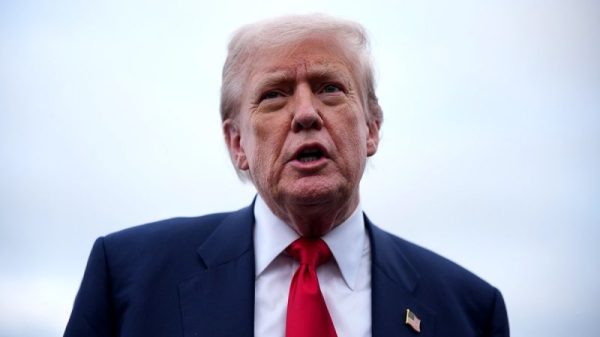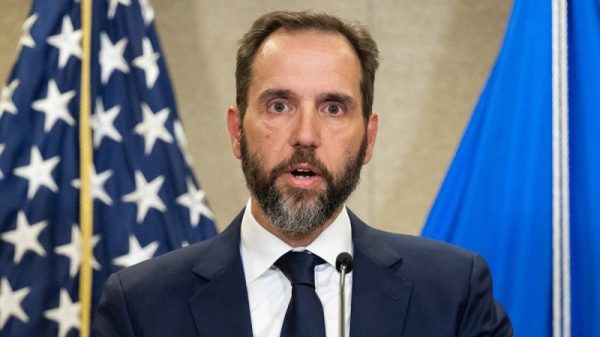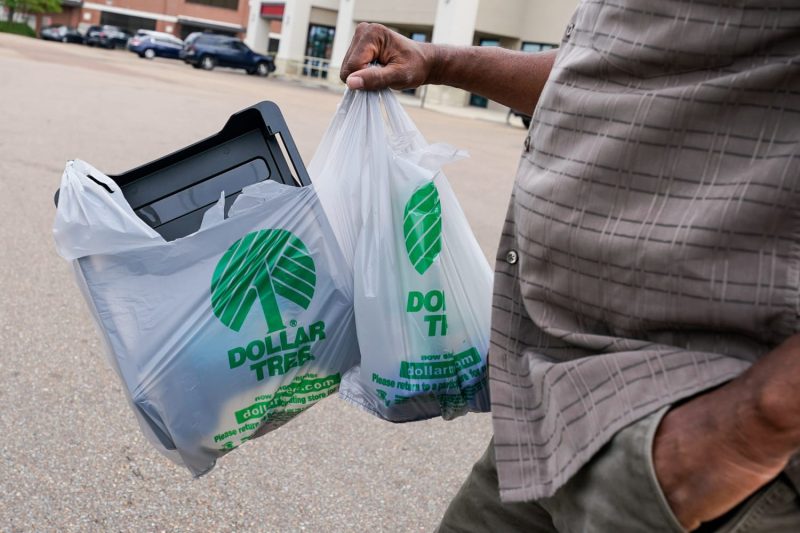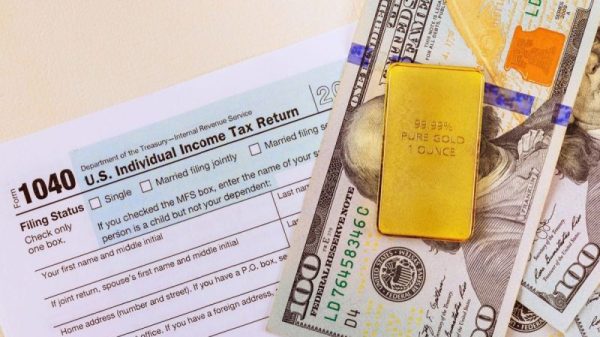Dollar Tree said Wednesday that it’s gaining market share with higher-income consumers and could raise prices on some products to offset President Donald Trump’s tariffs.
The discount retailer’s CEO, Michael Creedon, said the company is seeing “value-seeking behavior across all income groups.” While Dollar Tree has always relied on lower-income shoppers and gets about 50% of its business from middle-income consumers, sustained inflation has led to “stronger demand from higher-income customers,” Creedon said.
Dollar Tree’s success with higher-income shoppers follows similar gains from Walmart, which has made inroads with the cohort following the prolonged period of high prices.
Trump’s tariffs on certain goods from China, Mexico and Canada — and the potential for broad duties on trading partners around the world — have only added to concerns about stretched household budgets. While Dollar Tree will use tactics like negotiating with suppliers and moving manufacturing to mitigate the effect of the duties, it could also hike the prices of some items, Creedon said.
Dollar Tree has rolled out prices higher than its standard $1.25 products at about 2,900 so-called multi-price stores. Certain products can cost anywhere from $1.50 to $7 at those locations.
The retailer weighed in on higher-income customers and the potential effect of tariffs as it announced its fourth-quarter earnings. Dollar Tree also said it will sell its struggling Family Dollar chain for about $1 billion to a consortium of private-equity investors.
Dollar Tree said its net sales for continuing operations — its namesake brand — totaled $5 billion for the quarter, while same-stores sales climbed 2%. Adjusted earnings per share came in at $2.11 for the period.
It is unclear how the figures compare to Wall Street estimates.
For fiscal 2025, Dollar Tree expects net sales of $18.5 billion to $19.1 billion from continuing operations, with same-store sales growth of 3% to 5%. It anticipates it will post adjusted earnings of $5 to $5.50 per share for the year.
Creedon said the expected hit from the first round of 10% tariffs Trump levied on China in February would have been $15 million to $20 million per month, but the company has mitigated about 90% of that effect.
Additional 10% duties on China imposed this month, along with 25% levies on Mexico and Canada that have only partly taken effect, would hit Dollar Tree by another $20 million per month, Creedon said. The company is working to offset those duties, but did not include them in its financial guidance due to the confusion over which tariffs will take effect and when.

























